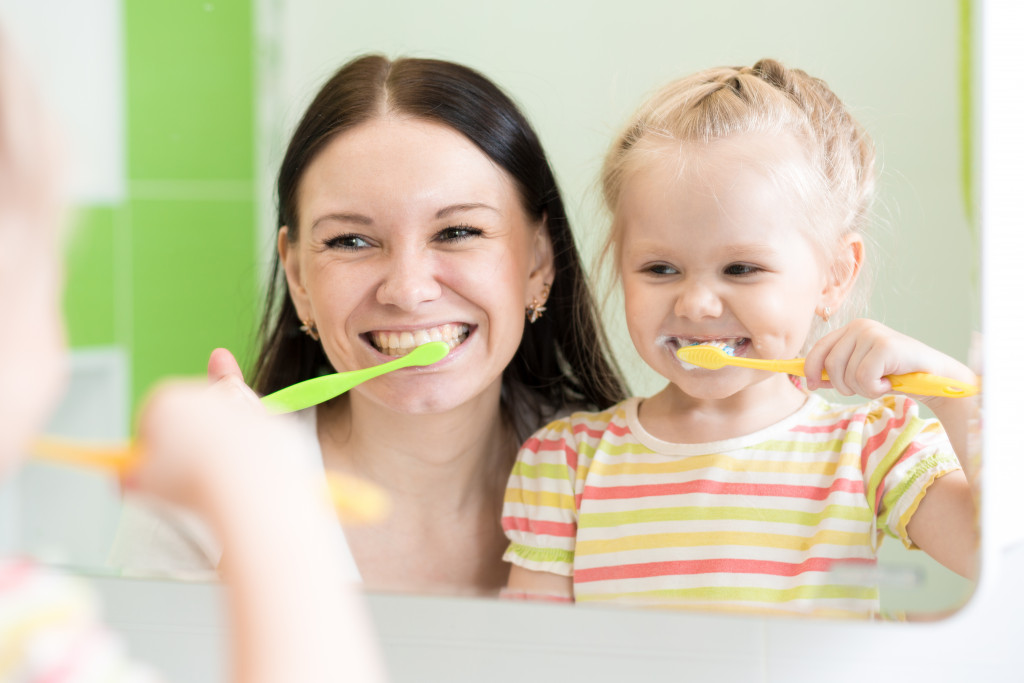A parent’s concerns run the gamut — from your child’s safety to their education. It’s a lot to take on, which is why it’s one of the hardest things to do in life; worthy, but difficult. And one of the more difficult perhaps has to be looking after your child’s medical needs when they’re at that critical age: from one to three.
Medical concerns can keep you up at night, when your toddler’s crying incessantly or when they’ve developed an allergy. The key to managing your anxieties over your kid’s health is to figure out what standard health practices to follow and what conditions to keep an eye on. This way, you know when to take care of the matter yourself and when to call the doctor.
Personal Hygiene for Your Toddler
Every healthy human being starts with personal hygiene. But your toddler’s bathing frequency will differ from you as an adult; toddlers only need to bathe two to three times a week. The operative word here is “bathe.” This explains why many parents looking at houses insist they need a bathtub since it’s easier to keep a toddler clean in the tub rather than in a sink or in a makeshift tub in the shower.
If your toddler’s particularly active, getting outside and getting dirty, clean their face every day without bathing them. Washing the genitals is also necessary daily without bath time.
What happens when your kid has ablutophobia or fear of bathing? Don’t panic because it’s a common toddler fear and you can remedy it by:
- Getting in the tub yourself to show your toddler it’s secure and fun even
- Adding bubbles and toys to keep bath time enticing
- Trying a smaller tub if the size of the bathtub is daunting to them
Dental Care for Your Toddler
Tooth decay could start early, especially if your child’s diet of sugar is out of control. If your toddler’s still at one, it may be best to take them to see a dentist specializing in kids. The best time to take your child for their first dental appointment is when the first tooth makes an appearance. This way, you get professional guidance on your child’s dental health.
What kind of toothpaste should they use? How often should they clean their teeth? How do you make dental hygiene fun and appealing at their age? Your kid’s dentist will have the right answers.

Immunizations for Your Toddler
A lot of controversies surround immunizations for kids. The arguments on both sides can overwhelm a first-time parent. Those who are against it say vaccines cause autism and insist that natural immunity is better than the ones grown in a lab.
Researchers have yet to find the connection between autism and vaccines. And relying on natural immunity exposes a child to other risks; mumps could lead to deafness without immunization.
The bottom line is immunizations are crucial to a child’s health. They work in two ways: protecting your child from catching deadly diseases, like polio and diphtheria, and they reduce the opportunities for dangerous diseases to spread from one kid to another.
Talk to your pediatrician about immunizations for your toddler. Tell the health care professional your concerns and don’t look to social media for answers. And keep your child’s vaccines updated.
Recognizing Allergies in Your Toddler
A cough that’s persistent, the face or lips swelling, breaking out in hives — these are all signs of a mild allergic reaction. Your toddler could be reacting to their environment due to dust or pollen or it could be something they ate. When these things occur, it’s best to check with your kid’s doctor because allergies can go from being moderate to severe.
A severe allergic reaction, also called anaphylaxis, could lead to diarrhea, tongue swelling, or fainting. The best way to get ahead of this is to have your pediatrician test your toddler for allergies. Your doctor will then refer you to an immunology specialist who will then run a blood or skin prick test.
This way, you have an idea of how to manage your toddler’s allergies or if they need to wear a medical bracelet to ensure other parents and teachers know your kid’s condition.
Your toddler will go through a few health issues like the flu, lice and worms, or conjunctivitis. As a first-time parent, you may worry and feel anxious about medical issues. But your kid is relying on you to stay focused and in control. So instead of panicking, have a plan for their health care.
Follow a bathing schedule. Find the right dentist. See about their immunizations. Observe for allergic reactions. And make handwashing a habit because this is the simplest way to teach your child to stay healthy — by minimizing the risks for spreading infection.

